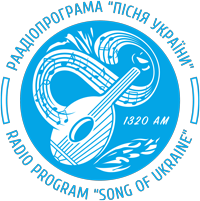On the Polish Internet, the image of Ukrainians is deteriorating against the backdrop of the election campaign. Ukrainians are mentioned in negative contexts in the comments. Key topics: Volhynia, social benefits, job losses, and rising crime.
In March, the image of Ukrainians on the Polish Internet was the worst since the beginning of the Great War. Never before has this been accompanied by such a strong wave of hostility, accusations, and dehumanization. According to experts, this is the result of several factors, but the ongoing election campaign in Poland is the catalyst.
This is stated in a study conducted by the Res Futura center in cooperation with SentiOne.
The narratives used to incite hostility towards Ukrainians have remained unchanged since the beginning of Russia’s full-scale invasion of Ukraine. This is a traditional message about Ukrainian war migrants as a “socio-economic burden” and as a cause of crime, as well as a narrative about the “pointlessness” of helping Ukraine in a situation where it cannot win the war.
According to research by Res Futura and SentiOne, in March the reach of this content on the most popular social media platforms in Poland was 325 million. The analyzed database was dominated by comments that aid to Ukraine should be stopped and thus the war should be ended (32%). In turn, 28% concerned the need to remove Ukrainian war migrants from the public space of Poland, and another 25% – the threat of crime due to their presence.
Ukrainians in Poland are most often accused of theft, assault, and the general increase in crime (41% of comments), abuse of the social benefits system (29%), taking away Poles’ jobs and pushing them out of the public sphere (21%), as well as lack of gratitude and pickiness (9%).
The issue of the Volyn tragedy is more popular (over 46%) than the “criminality” of Ukrainian military migrants (42%). The exhumations of those killed in Volyn and Eastern Galicia and their commemoration were also frequently mentioned (over 33%).
“The change concerns not so much the number of such posts, but the fact that they contain the spread of aggression,” the expert emphasized, adding that, in his opinion, “this is the result of emotions caused by integration centers. The belief that we are being attacked by strangers also affects Ukrainian military migrants in Poland.”
“The change concerns not so much the number of such posts, but the fact that they contain the spread of aggression,” the expert emphasized, adding that, in his opinion, “this is the result of emotions caused by integration centers. The belief that we are being attacked by strangers also affects Ukrainian military migrants in Poland.”
The authors of this content are extremely effective thanks to the skillful use of the platform’s algorithms.
“All these messages — their frequency, dynamics, pace — are adjusted to the algorithm. We have not investigated this, but I do not exclude that there are political circles in Poland and abroad for whom this situation is very convenient. Since 2023, the main goal of Russian propaganda has been not to love Russia, but to hate Ukrainians, and now this has begun to fall on extremely favorable ground,” Fedorovych noted.
As Lukasz Adamski, deputy director of the Juliusz Miroszewski Dialogue Center, explained in an interview with PAP, several factors influence this.
“First of all, this is the influence of Russian disinformation, which has a huge number of anonymous accounts that spread false information and anti-Ukrainian narratives. Many people who are skeptical about Ukraine are tempted by such narratives,” the expert noted.
Another reason is the fatigue of Poles from the long war, and therefore from the long-term presence in Poland of Ukrainian military migrants, especially from eastern or southern Ukraine, who are usually more culturally different from Poles than Ukrainians from the western regions.
“It cannot be denied that due to the reasons I have mentioned, Poles are becoming increasingly unfriendly to Ukrainians. During the election campaign, all social phenomena are more intensively exploited in public discourse,” concluded Łukasz Adamski.
Ukrainian Service
Polish Radio










